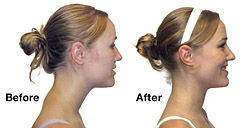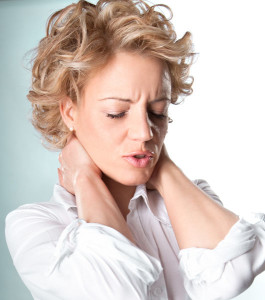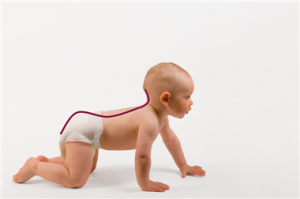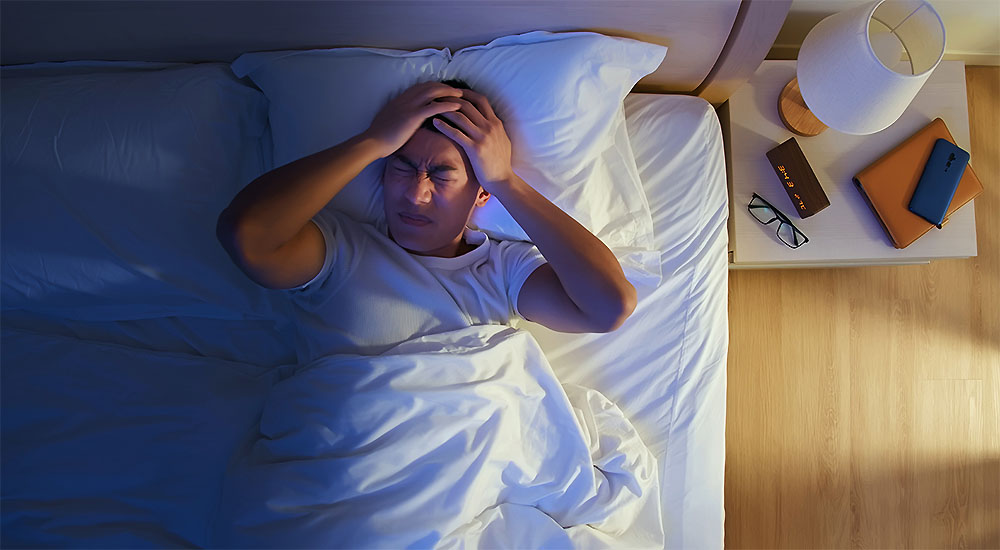What a Pain in the Neck! – Physical Therapy Report

 Do You Have Pain in your Neck?
Do You Have Pain in your Neck?
No insult intended, but if you wake up in the morning with your neck hurting, or it is chronically stiff and painful, you might just feel like ‘One Big Pain in the Neck.’ Pain is enough to take away your otherwise sunny disposition. Let’s examine the possible causes of neck pain, and how physical therapy can help to restore that sunny disposition again!
There’s a Reason for the Pain
Waking up in the morning with neck pain (or stiffness) could mean:
1. you don’t have adequate neck support during the night
2. you have weak muscles or pinched nerves in your neck or upper back
3. that your sleeping positions are creating stress on your neck
There are a variety of cervical (neck) pillows that have an extra lift to support the neck while sleeping on your back. A slightly different style of the pillow is best for side sleepers to fill in the gap between your shoulder and neck that keeps your head and neck in good alignment. Shop around until you find the one that feels best to you.
Don’t sleep on your stomach. Unfortunately, this position twists your neck and head thereby greatly improving your odds of waking up with a stiff or painful neck. Many people start the day feeling okay, but as the day goes on (especially if you use the computer much of your day), gravity takes its toll – your posture slumps – and as the head and neck drift forward, the neck begins to ache and stiffen.
Postural stress or poor posture is a common cause of upper back pain and neck pain. If possible, get an ergonomic evaluation at your place of work for starters. Then do your best to hold good posture throughout your day – taking breaks as often as is practical. Having trouble doing this? Read on!
Physical therapy, as well as a chiropractic adjustment, may be of significant help if poor posture is an issue for you. If you’re losing the ‘posture battle,’ it may be due to weak muscles in your back and neck. Additionally, there are other conditions that may need to be addressed with physical therapy including structural imbalances that result from a lifetime of little microtraumas – part of living, I’m afraid.
The result however can be weak muscles in one area and extra tight muscles elsewhere. Such imbalances can usually be remedied by hands-on physical treatment.
Is Your Neck Curved? It Should Be
From the time an infant raises his or her head up to see the world around him for the first time, a curve is being formed in the neck. This becomes a part of normal spinal anatomy.
X-rays of normal, healthy people with good posture and no history of neck injuries typically reveal this natural curve of the neck. I’ve even seen it in the x-ray of an 80-year-old patient. He had the exact neck curve one sees in textbooks, proving it can be preserved with age.
Why is it Curved?
If you think of your neck supporting a 12-15 pound bowling ball (the weight of the skull), it makes sense that you want the body to able to hold up that weight without effort or strain.
With the proper curve, the weight of the heavy head is held up or distributed by the backs of the bones of the neck, a strong area designed for that exact job. If the neck was perfectly straight, however, that weight would put pressure on a part of the spine that is not designed to deal with it, namely the discs.
Such stress will result in the discs breaking down over time, resulting in something called degenerative disc disease – a problem that creates stiff, sore necks.
Is Your Neck Curved the Wrong Way?

As you can imagine, the muscles get tired, weak, and sore in the process. Over time, this can lead to serious postural distortions and even fractures. You may be unable to completely straighten up once that happens without serious surgical intervention.
The Neck is a Major Intersection in the Nervous System Highway
Nerves exit and enter the spine in the neck area and travel up into the head area as well as down each arm. With the types of postural distortions, irritated discs, and weakened muscles we’ve been discussing, another side effect is pinched nerves.
Depending on where and precisely which nerve or nerves are ‘pinched’, symptoms can range from headaches to arm symptoms, from jaw pain to shoulder aches, and from elbow pain to wrist discomfort – pain, weakness, or numbness can all result in these areas.
From an anatomy perspective, you may find it interesting to know that the same nerves that make your neck, head, shoulders, and arms work, also have branches that make your heart, lungs, and thyroid function – to name a few.
What’s the Solution for the Pain?
Physical therapy and chiropractic adjustments can work wonders in reducing neck tension, repositioning misaligned neck bones, correctly pinched nerves, and normalizing reduced or reversed neck curves.
Our physical therapy and chiropractic departments stress the importance of correct posture often with our patients – for sleeping, sitting, and in basic day to day activities. Other than the unpredictable accident, postural stress is the most common cause of neck pain. It is, for this reason, we focus on its root cause and have developed a program that works. We’re here to help. We improve posture and physical fitness.
Do you need help with your health?
We have the diagnostic and testing tools, the clinical experience, and a different medical approach to discovering the root cause of why you have the symptoms that are bothering you. As long as you are ready to make some dietary and lifestyle changes, we can help you. We will "hold your hand" through the changes, step by step, to make each step an easy one. We are located in Clearwater, FL, at 1000 S Ft Harrison, at the corner of Ft. Harrison Ave. and Magnolia St. There is plenty of parking space directly accessible from Ft Harrison. If it is not convenient for you to come to Root Cause Medical Clinic, we offer telehealth/telemedicine consultations to residents of certain states. Call us for details.
Contact us for a Consultation – Call 727-335-0400
Ask a Doctor
Have a health concern you'd like to speak with a doctor about? Or just want clarity on a subject? Ask Us!
Featured Articles
Popular Stories

Dr. Rupa Chakravarty DPT, OCS
Director of Physical Therapy at Root Cause Medical
Doctor of Physical Therapy, Orthopedic Certified Specialist
Dr. Chakravarty has numerous certifications for different techniques in Physical Therapy practice. She employs an extensive array of manual as well as exercise techniques to manage her patients’ symptoms during their course of therapy.

 Do You Have Pain in your Neck?
Do You Have Pain in your Neck?

